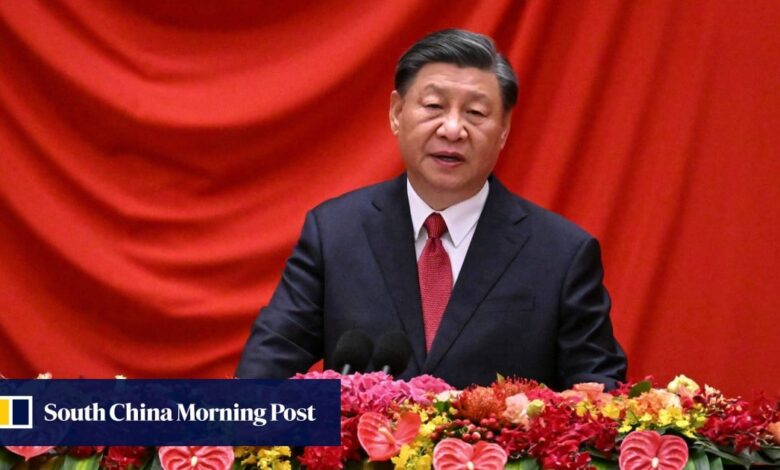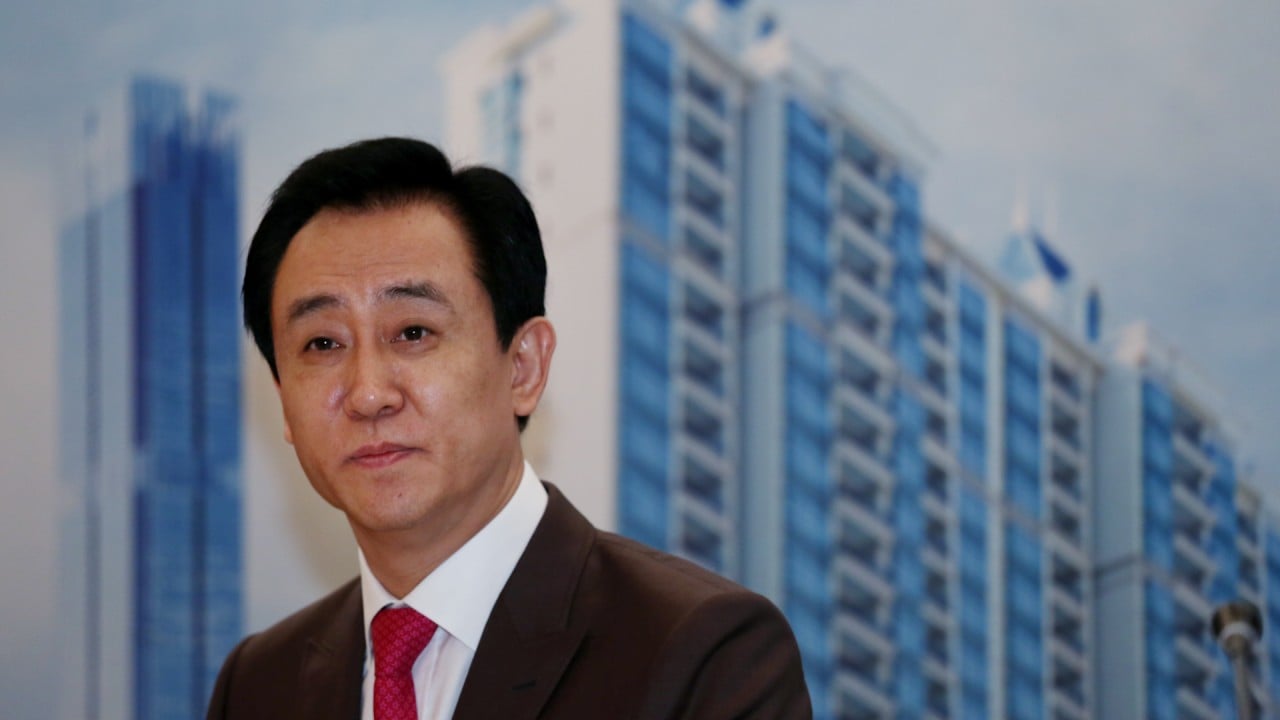Xi Jinping highlights importance of innovation on path to ‘Chinese-style modernisation’

[ad_1]
He also called for innovation to be given a “prominent position in the overall national development” and said: “Chinese-style modernisation is promoted in [different] stages and areas. Achieving development goals at each stage and implementing development strategies in various fields also requires top-level design.”
It was also published in the run-up to a major political gathering this autumn, the third plenum of the 20th party congress, where the leadership is expected to send out a strong signal on economic reforms and plans to become self-reliant on technology.
In the speech Xi told cadres to strengthen their “strategic thinking capabilities”, develop realistic and effective strategies to connect the country with the world, while also exploring “new arenas” and “new tracks”.
He also asked cadres to remain open to change rather than being passive when implementing policies.
Xi further addressed the need for China to be both self-reliant and willing to open up to the outside world – a perpetual dilemma heightened by Western moves towards “de-risking”.
He said maintaining economic security through stable food and energy supplies, as well as safeguarding industrial and supply chains, is key to “keeping the destiny of our country’s development and progress firmly in our own hands”.
He also highlighted the need for “internal circulation” – a cycle of domestic production, distribution and consumption – to power economic growth and development and safeguard the country’s independence.
“It is necessary to deepen the reform of systems and mechanisms in all aspects, fully attain the creative potential of the whole society, and encourage scientists, entrepreneurs, writers and artists and other talents, especially young talents, to innovate and create,” Xi added.
Xie Maosong, a senior researcher at the National Institute of Strategic Studies at Tsinghua University, said the senior cadres are being tested on whether they are equipped with “a transformative and strategic mindset” to weather the storms the country faces at home and abroad.
China’s Xi Jinping appeals to decades-old mantra of reform, eyeing economic jolt
China’s Xi Jinping appeals to decades-old mantra of reform, eyeing economic jolt
“Internationally, there is the decoupling and disconnection initiated by the United States, as well as extensive containment efforts against China. In the Asia-Pacific region, there is an attempt to encircle China and transform Asia into something akin to Nato in addition to efforts to wage technological war against China,” Xie said.
He added that on the domestic front, China also needs to continue supporting economic growth, adding that the Chinese leader’s twin emphasis on security and development means “not pursuing development is not a viable option”.
“The idea is that the best security is closely tied to economic growth and strength. The stronger the economic capabilities, the greater the security assurances,” Xie said.
Xi also called for the active promotion of an “intraparty democracy” that would protect the rights of party members while addressing their unwillingness to take responsibility.

He also said that the Chinese way must not only be more efficient in modernising than capitalism, but also in maintaining fairness in society. Xi added that “fair rights, fair opportunities, and fair rules” ought to be the main principles of the country’s social system.
China’s top economic planning agency, the National Development and Reform Commission, wrote in a separate article for Qiushi: “China is facing an increasingly complicated economic and social situation as the impact of politics, economics, diplomacy and ecology have intertwined, which requires a more coordinated approach in policy making.”
, demonstrating China’s dialectical ideology of wanting seemingly clashing results.
[ad_2]
Source link






